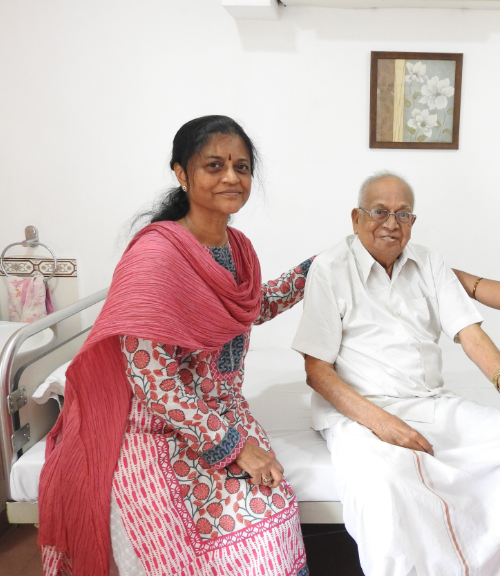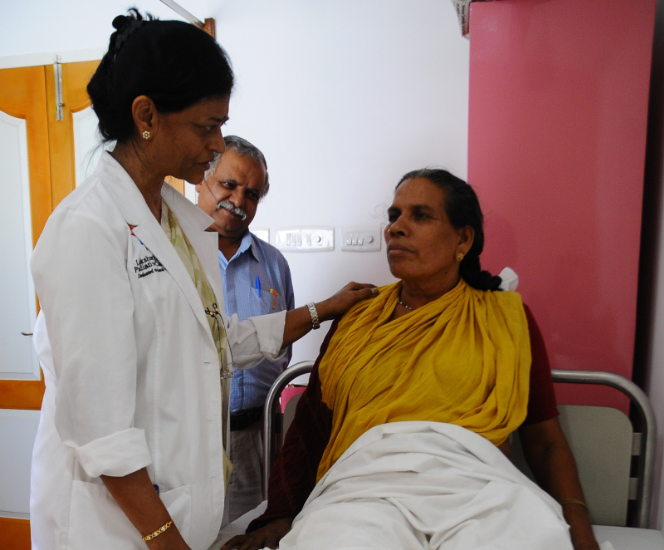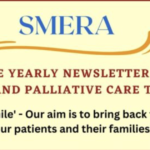What is Palliative Care
Palliative (acr. Pain-Alleviation) Care is the treatment of distressing physical symptoms and emotional issues caused by chronic and life threatening diseases. The sole aim of the care is to improve Quality of Life for patient and family.
According to the definition of health by the WHO in 1942, “Health is a state of physical, mental, social and spiritual well-being…” the duty of every physician is to treat any patient in this holistic manner. Since advances in medicine has made medical training more disease oriented than patient-oriented, Palliative Care is considered as, ‘Old world medicine –REBORN’ to fill the gap between cure and care! Palliative care is complimentary to all medical specialties as part of treatment and good old wholesome medical care! Palliative care cannot be equated to terminal care! It is a ‘NEED-BASED’ care to be available for patients throughout their illness from the very beginning, to ‘palliate’ the distressing symptoms as and when they arise.

Misconceptions about Palliative Care & Treatment

Palliative Care is for patients for whom doctors have nothing further to do
Is not Palliative Care ONLY about counseling?
Morphine is the only medicine given in Palliative Care.
FAQ
What is PALLIATIVE CARE?
What is the difference between Palliative Care & Hospice Care?
Hospice Care is similar to palliative care but applies to only those chronically ill patients who are predicted to live for not more than 6 months. In the western countries this arrangement helps insurance facilities. The CARE is the same – relieving physical and emotional suffering and improving quality of life.
If a patient is referred to a specialist in Palliative Medicine, does it mean he is in the terminal stage?
Palliative Care can help right from this time when both patient and family need skilled counseling and compassion to understand their emotions – fears, anxieties dilemmas related to decision making – and address them accordingly. The care may be needed during active treatment of cancer and other chronic diseases (for treatment of side effects) and more so in the advanced stage. It is a form of SUPPORTIVE CARE adding an extra layer of support to the patient and family by relieving their distressing physical and emotional symptoms throughout the disease trajectory including the treatment period. In fact, Palliative Care is now considered as part of treatment of any disease at any stage and at any age. (WHO Mandate May 2014)
We don’t want to opt for Palliative Care. We don’t want to give up as yet.
Who should reach out for Palliative Care?
When should we go to a Palliative Care doctor, if diagnosed with a life limiting illness?
Can a family member of a patient reach out to Palliative Care?
Do Palliative Care doctors come on home visits?
Can Volunteers do Palliative Care?
Can cancer spread from one person to another?
Cancer is not an infection and is a not contagious! disease. It will NOT spread from one person to another. You can live in the same room and eat from the same plate! You can touch and take care without any fear or doubt.
One of my family members had cancer. Will I also get it?
But certain cancers may be hereditary which means a person may be at a higher risk of getting cancer if his/her relatives have had that particular cancer e.g. breast, ovarian, colorectal cancers. When in doubt write to us or talk to your doctor..
Does morphine tablet help ALL KINDS of pain?
Does taking morphine tablets mean that the disease is advanced?
According to the World Health Organisation (WHO) Guidelines, Morphine tablet should be given for severe pain WHENEVER it occurs during a cancer illness. Severe pain is a common side effect of chemotherapy and radiotherapy, but it can be well relieved with tablet morphine which can be stopped when pain subsides after treatment is completed. Without this pain relief, patients may refuse to continue treatment and even lose the opportunity to get cured or control of their disease! Good PAIN RELIEF helps them COMPLETE their TREATMENT and GO BACK TO social circulation. Severe pain is more common in the advanced stage due to spread of the disease and the drug is used more often at this stage.
Doesn’t Tablet Morphine lead to addiction?
What is addiction? It is the ‘kick’ (euphoria) that one gets when an addiction forming chemical gets absorbed rapidly into the blood circulation. This can only occur with drugs that are inhaled or injected and not with the tablet. An addict’s abnormal behavior is in clear contrast to the normal behavior and functioning of the patient’s. Millions of patients all over the world are given this tablet with NO REPORT OF ADDICTION. (Please note: It is only the injection form that can lead to addiction, that too only when taken by normal people and not in those with severe cancer pain!)

